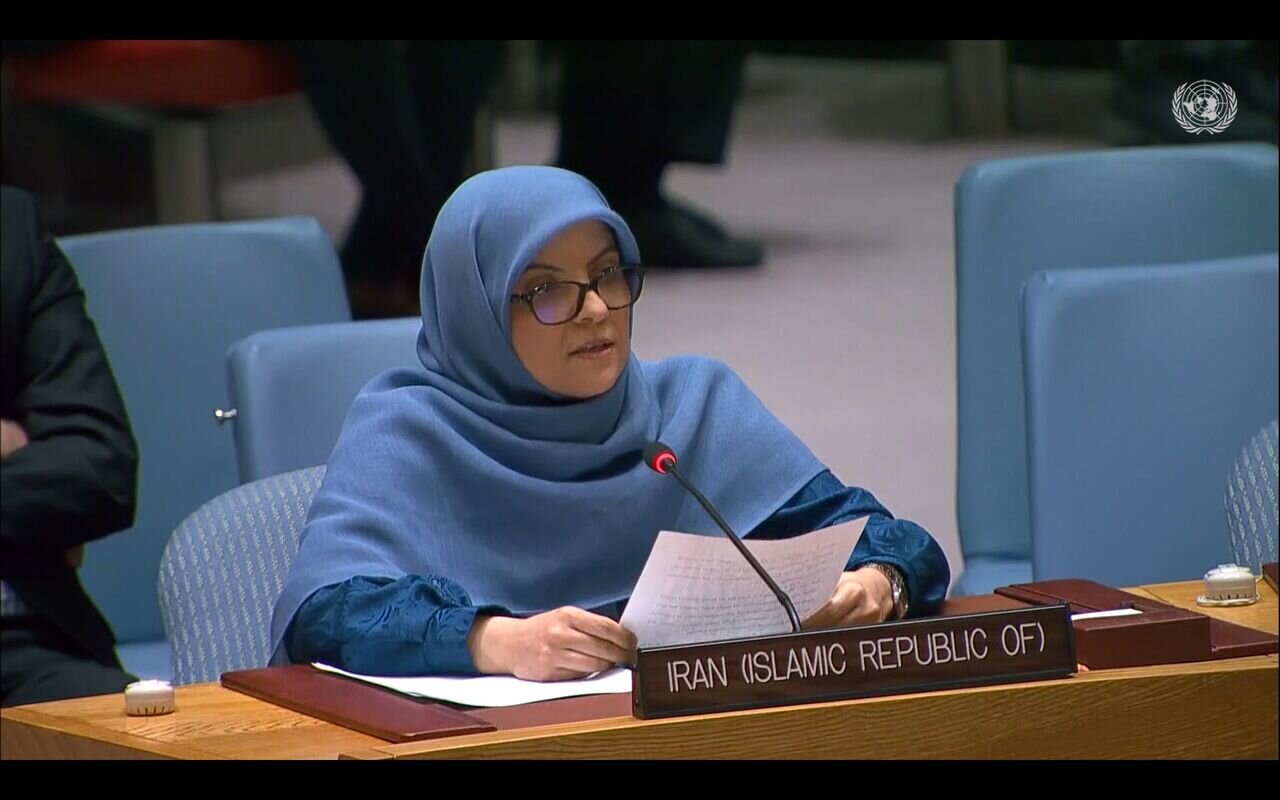Iranian diplomat cautions of ramifications of unilateral sanctions

TEHRAN- An Iranian diplomat on Tuesday called for an end to unilateral sanctions on nations, warning of the dire effects on people, particularly women and children.
Zahra Ershadi, Iran’s deputy permanent representative to the UN, said that lifting unilateral sanctions would allow the international community to provide prompt, appropriate, and effective humanitarian responses.
She made the remarks before a UN Security Council meeting on the protection of civilians and ensuring their security and dignity in times of conflict.
What follows is the text of her statement:
We commend Switzerland's Presidency for initiating this open debate, and we thank the Secretary-General and other briefers for their incisive briefings.
Protecting civilians during conflicts is critical since it has a devastating impact on their life.
Under international humanitarian law, all parties to a conflict are required to ensure that civilians have access to essential goods and services, including food and medical care. They are also prohibited from attacking civilian objects such as food supplies, water sources, and hospitals.
Despite the obligations outlined in international humanitarian law, the Secretary-General's report (S/2023/345) indicates that armed conflicts in 2022 resulted in a significant number of casualties, including deaths, injuries, enforced disappearances, and immense suffering. The United Nations documented a concerning increase in civilian deaths, with at least 16,988 recorded across 12 conflicts, marking a 53 percent rise compared to the previous year.
The report also highpoints the persistent and devastating effects of armed conflicts on food security, leading to continued hunger in many regions. The disruption of agriculture and trade exacerbates the situation, causing shortages of essential supplies and agricultural products.
These alarming statistics underline the urgent need for concerted efforts to address the impact of armed conflicts on food security and protect civilian populations.
Yet, in the Middle East, our critical region, terrorism, occupation, illegal unilateral acts, and the presence of illegal foreign forces continue to wreak havoc on civilians and their infrastructure.
In the Occupied Palestinian Territory, the Israeli regime continues its oppressive, expansionist, and apartheid practices, systematically violating the human rights of Palestinians. The UN report underlines that last year witnessed the highest number of Palestinian civilian fatalities in the West Bank since 2005. Furthermore, the situation in Gaza is deeply distressing as it has effectively become the world's largest prison. The destruction of vital infrastructure compounds the already dire humanitarian situation, leaving the people of Gaza in a state of extreme vulnerability.
In the Syrian Arab Republic, the persistence of unilateral sanctions imposed by the US and EU, as well as the plundering of Syrian natural resources by illegal foreign forces, have had a negative impact on the humanitarian situation in Syria, exacerbating the challenges faced by the Syrian people and impeding the Syrian government's ability to provide essential services to those in need.
Furthermore, the Israeli regime continues its aggressions and terrorist attacks against Syria's sovereignty and territorial integrity with impunity and no repercussions from the international community.
We strongly condemn these heinous crimes as they targeted civilian infrastructure and violate international humanitarian law and the UN Charter, posing a severe threat to regional peace and stability.
In Afghanistan, to ensure that the Afghan people receive the assistance they require, humanitarian aid must remain impartial and unconditional. Any politicization of humanitarian assistance can only harm the Afghan people who rely on it for survival. Likewise, the frozen assets of the Afghan people must be returned in full, and without any condition. Meanwhile, the de-facto authorities must fulfill their commitments, particularly those concerning the rights of women and girls.
To provide effective civilian protection, it is critical to prioritize ending the conflict and securing a political solution, in addition to scaling up humanitarian operations.
Effective humanitarian operations for civilian protection rely on international cooperation, proper and timely finance, and resource access; unfortunately, these elements are impeded by unilateral coercive measures.
Unilateral coercive measures have severe consequences, particularly on food insecurity, affecting civilians, especially women, and children.
These illegal measures also hamper healthcare systems and humanitarian organizations, restricting access to medical supplies and impeding aid delivery.
By lifting unilateral sanctions, the international community can foster an environment that enables swift and effective humanitarian responses, ensuring that critical assistance reaches those in need without unnecessary delays or limitations.
And finally, we urge all parties to armed conflicts to fully comply with their obligations under international law, as well as to respect the humanitarian principles of humanity, neutrality, impartiality, and independence in the provision of humanitarian assistance, including medical assistance.
Leave a Comment